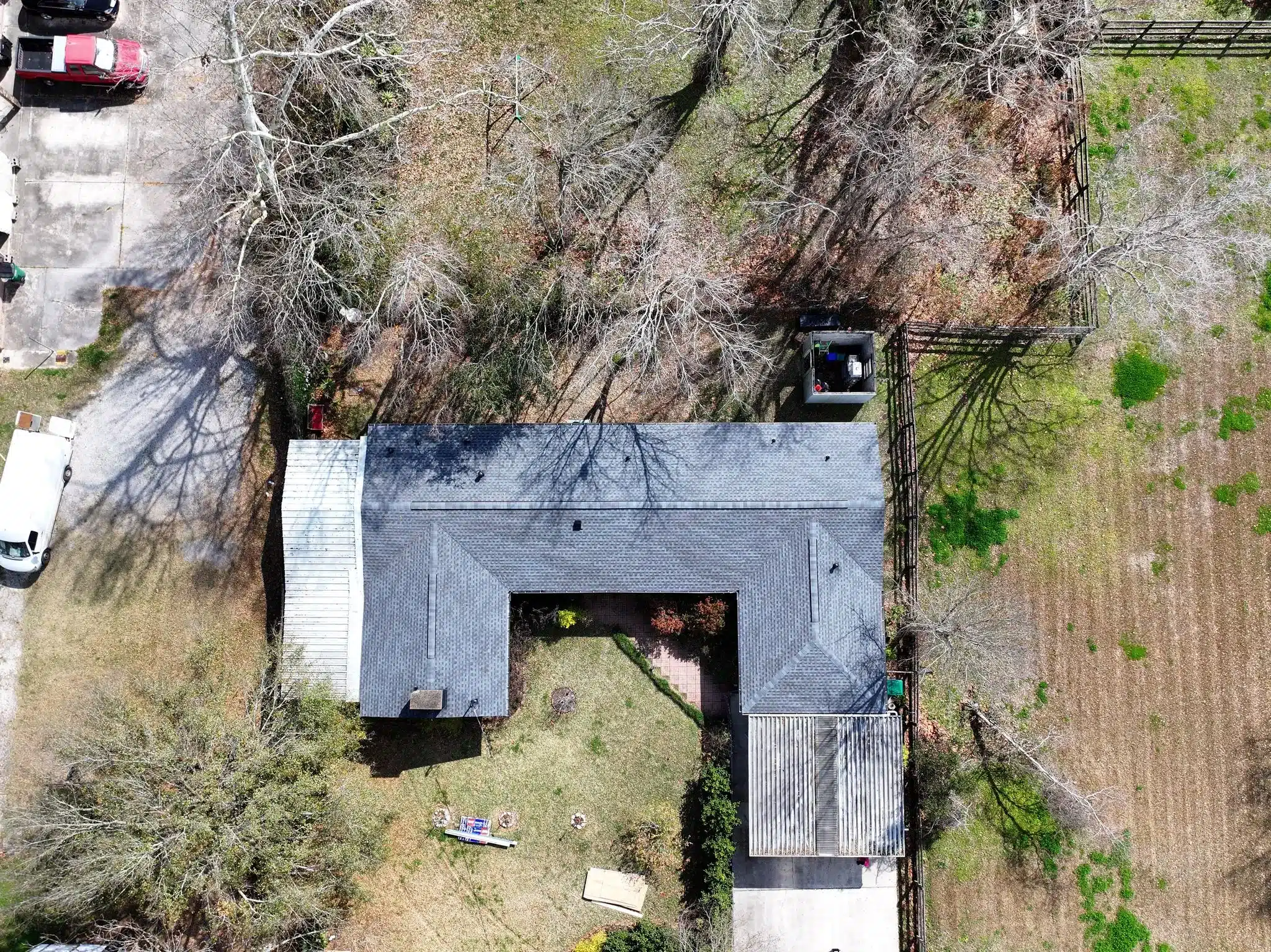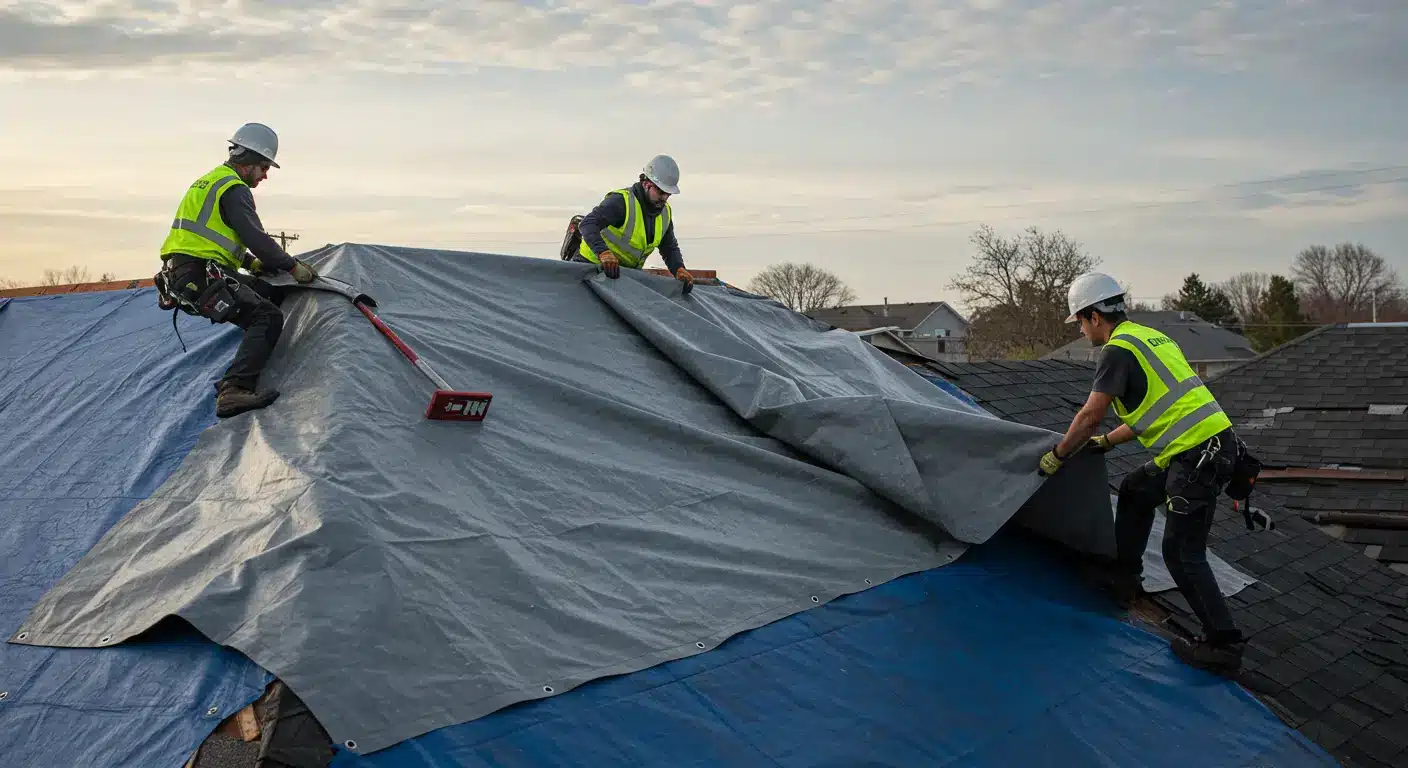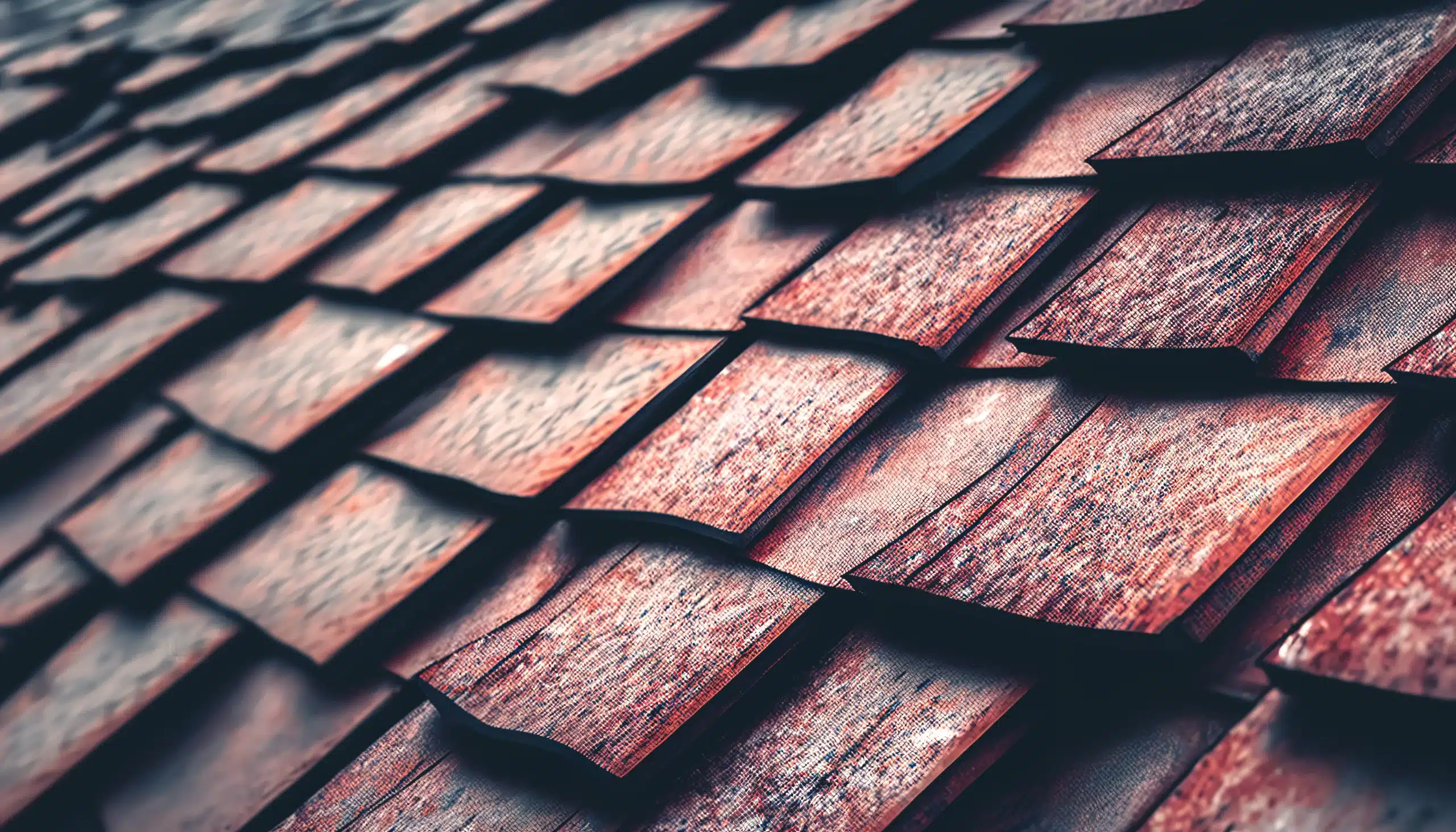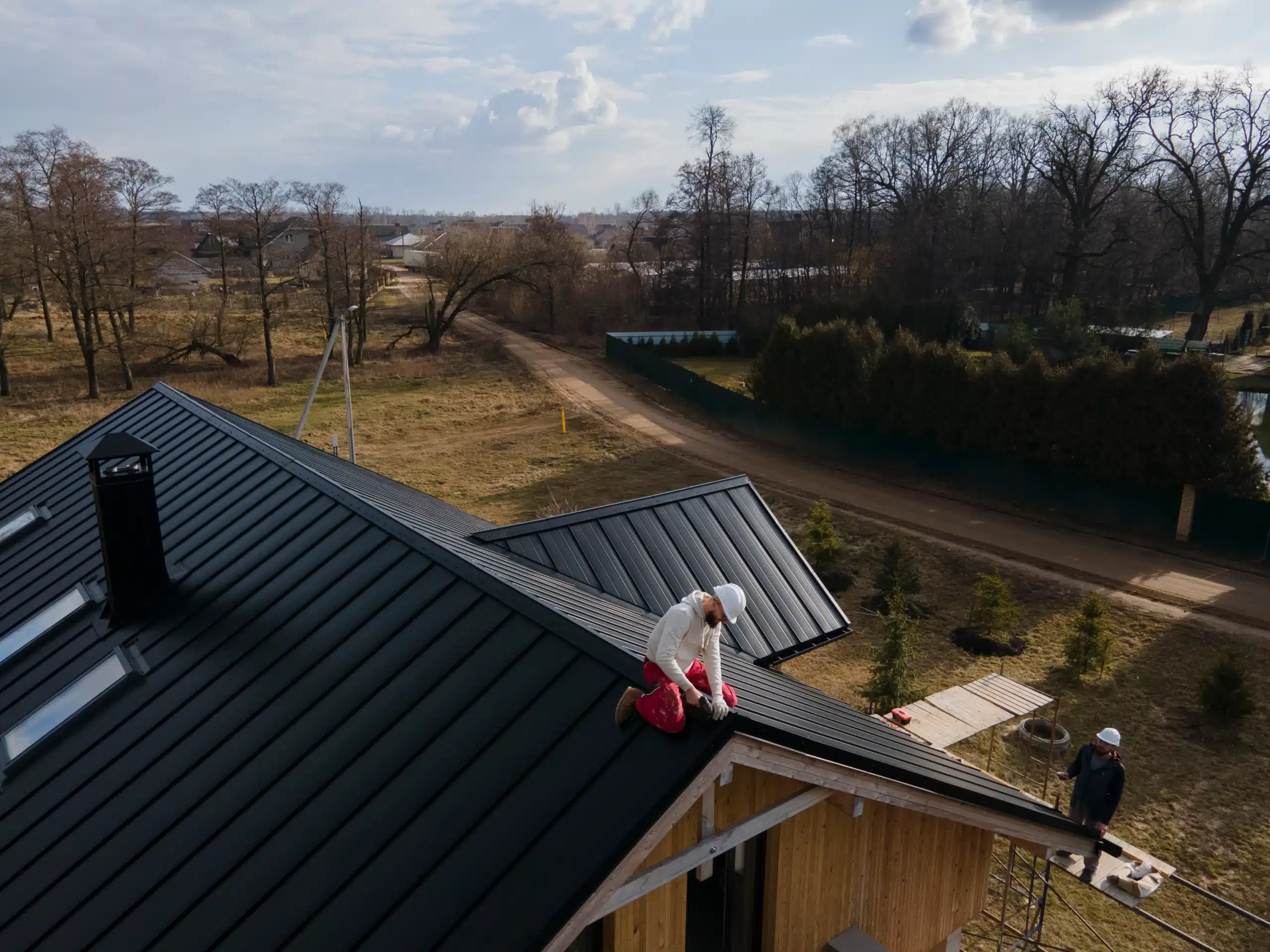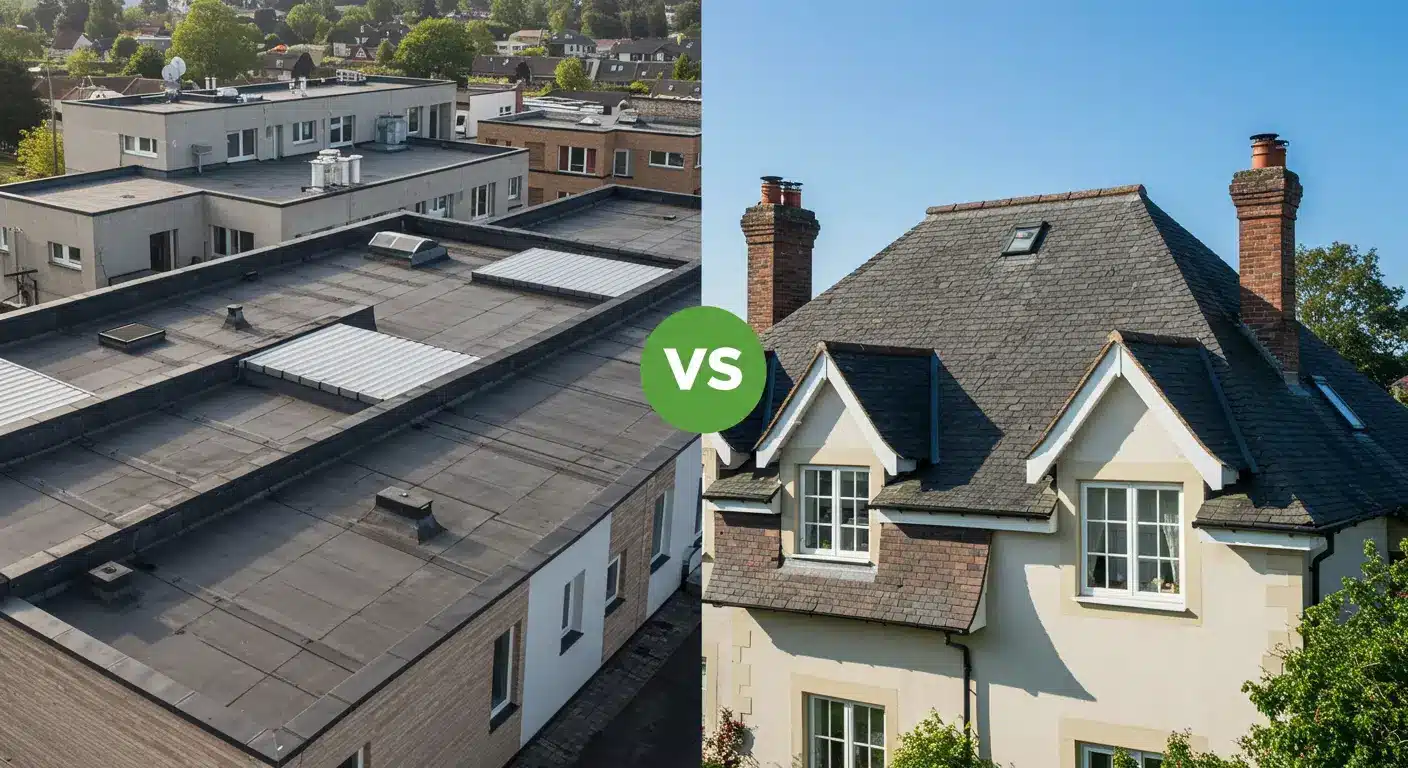One of the most important parts of any house is a roof; it keeps structural integrity of your property and separates you from the elements. Home warranties are common sought for relief as replacing or repairing a roof can be costly. Still, the question “Does home warranty cover roof?“ has no straightforward solution. differing warranties provide differing coverage, and many policies restrict or exclude roof-related repairs totally. Knowing how home warranty plans operate—and how they vary from homeowners insurance—will help you save your roof and prevent expensive surprises.
Does Home Warranty Cover Roof Leaks?
Roof leaks are probably the most common and frequently occurring problems homeowners face. Unchecked, a minor leak can cause major interior damage ranging from mold development inside the insulation or drywall to damaged ceilings. Many house warranties include extra coverage for roof leak repairs as many of their suppliers understand that leaks are a common complaint. Many times, depending on the condition of the roof at the time the warranty insurance went live, this optional coverage concentrates on leaks brought on by rain or normal wear and tear. Simple elements like flashing can also fit under optional coverage.
Home warranty plans with roof leak coverage do, however, also often have certain exclusions. For instance, a leak resulting from a fractured shingle brought on by incorrect installation usually is not covered. Excluded could also be damages resulting from inadequate maintenance or past problems. Furthermore usually not included within conventional roof leak coverage are gutters, chimneys, and roof-mounted systems such as solar panels or satellite dishes. Homeowners should so attentively go over their agreement to find any restrictions and exclusions. Even if a plan claims roof leak coverage, those specifics can make all the difference when it comes time to submit a claim.
Does Home Warranties Cover Roof Damages?
Many homes owners believe that, should they have a house warranty, all roof-related issues will be resolved as the terms “leaks” and “damage” are sometimes used synonymously. Although some home warranties cover leaks, they hardly cover extensive damage or general degradation of a roof. Many times, roof damage resulting from outside events—such as falling trees, hailstorms, hurricanes, or other natural disasters—is excluded as homeowners insurance usually covers these rather than a home warranty.
Homeowners may expect certain limitations to a warranty even if it does offer protection against leaks. They can come across limits on the kinds of repairs a contractor can do or annual payout constraints. A plan might, for example, cover the expense of fixing a particular leak but not more general damage to underlayment or supporting structures. Many times, policyholders find that their plan merely pays a fixed amount for roof leak repairs, leaving them liable for any expenses over that cap.
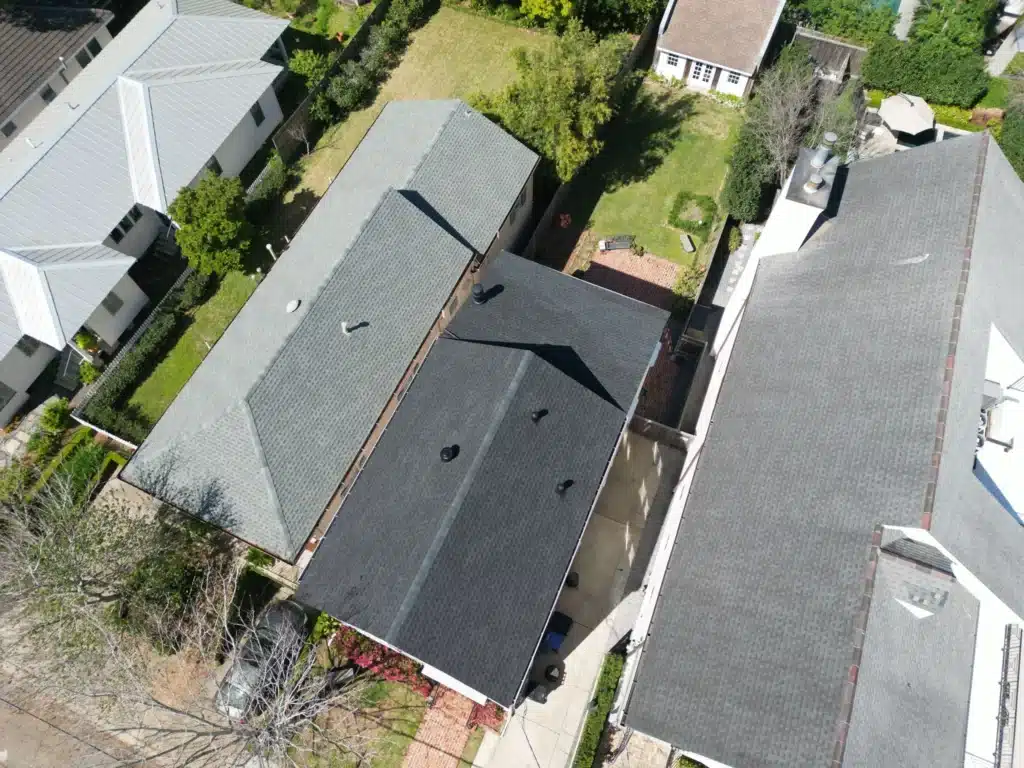
Does Home Warranty Cover Roof Repair and/or Replacement?
Whether a house warranty covers a full roof replacement is among the most crucial issues a homeowner could have. The sad truth is most home warranties do not cover the expense of removing and replacing a roof. This makes sense given the way house warranties are structured: usually, they concentrate on keeping systems and appliances that fail from regular wear and tear during the warranty term intact. By comparison, a complete roof replacement is a significant structural cost much beyond the normal range of these warranties policies.
Most home warranty companies view roof repairs or replacement projects as major structural efforts rather than standard maintenance. Actually, while a roof is often built to endure decades, the average home warranty is extended yearly. Major structural overhauls are hardly included as the whole business strategy of the guarantee is based on smaller, more predictable repair expenditures. Turning to either specialized roofing warranties or homeowners insurance for damage caused by a covered risk is usually more effective for homes looking for complete roof replacement coverage. Manufacturer warranties on roofing materials may also be relevant should flaws in those products cause the issue. Many respectable roofing companies also provide workmanship warranties for the labor component of a roof installation, which can help reduce expenses should a mistake cause damage over time.
What Does Home Warranty Cover?
Usually covering a spectrum of equipment and appliances found inside a home, a home warranty Among the things usually found are plumbing lines, heating and cooling systems (HVAC), electrical systems, water heaters, and main kitchen equipment such ovens and refrigerators. Certain plans will also cover laundry machines such dryers and washers. These are all vital systems and appliances that, with age, might become more prone to breakdown and call for costly repairs.
Many home warranty companies highlight extra, optional coverage additions in their marketing. Occasionally these add-ons include well pumps or pool equipment, and in some circumstances limited roof leak coverage. Usually incorporated in as well are exclusions for pre-existing conditions, secondary damage (such as water damage from a leaking pipe), and extra expenses including disposal costs. Reading your plan carefully before making a purchase is absolutely vital since coverage specifics differ by provider and can be rather exact. Some homeowners find out too late they lack coverage for problems they expected the warranty would cover.
Does Building Insurance (Homeowners Insurance) Cover Roof Repairs?
One typical area of uncertainty is the distinction between homeowners insurance—sometimes known as building insurance—and home warranties. These two kinds of protection are quite different. Often legally or contractually mandated for mortgage holders, homeowners insurance offers financial defense against unplanned, unintentional losses including fire, theft, or natural disasters. Therefore, homeowners insurance often covers or replaces a roof damaged by a covered peril—such as a hailstorm, tornado, or falling object.
The main drawback of homes insurance coverage is usually their exclusion of harm resulting from ordinary aging or negligence. If a roof collapses just because it is old and neglected, it is doubtful that an insurer will pay for replacement or repairs. This exclusion fits quite nicely with the coverage gap sometimes left by home warranties, which also usually ignore regular wear and tear on significant structural components. To guarantee complete security, many homeowners therefore find they require a mix of homeowners insurance, some optional warranty coverage (if available), and regular roof repair.
How to Select the Right Home Warranty Company
Choosing a home warranty provider calls for looking past cost alone. A homeowner worried about roof problems should especially consider whether the supplier offers optional add-ons including roof leak coverage. Verifying this information early on will prevent trouble later since some blueprints hardly address roof-related problems. Reading over the exclusions for every organization is also smart. Certain providers might define roof leak coverage strictly, just covering specific locations or types of damage.
Apart from coverage, homeowners should give company reputation some thought. Examining industry ratings or consumer evaluations might expose a lot about response times, claim denials, or the caliber of the hired contractors. Furthermore something homeowners should look at are service fee policies and payout caps. Tight annual restrictions on claims or strong service call fees could overwhelm a reduced monthly premium. Ideally choose a service that is open about terms and adaptable enough to create a plan based on the most urgent requirements of your house.
Sometimes working with a specialized roofing contractor is an even more dependable fix for roof problems. For instance, Lone Wolf Roofing provides focused services addressing particular roofing issues directly, therefore complementing warranty policies. Working with a professional roofer guarantees the well-being of your roof in the hands of specialists who know the complexity of materials, workmanship, and regional weather patterns rather than depending just on the limited protections a house warranty might offer. This strategy offers a degree of assurance not possible with a standard home warranty.
Common Exclusions in Home Warranties
Knowing what the contract does not cover is one of the most important elements of any home warranty scheme. Many providers stress coverage specifics, but they sometimes bury fine print restrictions and disclaimers. Understanding these exclusions helps you to control your expectations and allocate your funds for possible repairs.
Usually among the top excluded are pre-existing conditions. You probably will have your claim refused if the warranty provider finds that a problem existed prior to the policy’s inception—or that it was observed during a home inspection or in a seller’s disclosure. Another often excluded factor is inadequate installation or upkeep. Should a homeowner forget to maintain appliances or systems in proper running order, the warranty provider would usually reject any claims resulting from that neglect. The same holds true should an item be placed in a manner against local codes or safety recommendations.
Additionally excluded are cosmetic damage as dents or scrapes. Home warranties are meant to solve operational issues that compromise the performance of a system or appliance, not cosmetic ones that only influence look. Usually left out of coverage are large structural elements such walls, ceilings, and foundations. Although some warranties include an optional add-on for roof leaks, more thorough roof or structural repairs are hardly typical of a basic plan. Many providers additionally limit or exclude outdoor systems, hence items like underground plumbing lines, sprinkler systems, or pools may need specific or extra coverage.
Still another factor is collateral damage. For example, most house warranties only cover fixing or replacement should a leaking water heater ruin your floor. Usually your duty for addressing floor damage, or depending on homes insurance, whether the event falls under a protected danger. Many systems also have certain coverage restrictions. Should you have a covered issue, the warranty may only pay a specific sum, leaving you to pay any balance personally.
Ultimately, ordinary house warranty contracts usually do not include technologically driven systems or amenities. Advanced systems include water purification, specialist heating elements, or smart house appliances can be omitted unless specifically mentioned in an enhanced design. Furthermore, a home warranty usually will not offer duplicate coverage if an appliance or system is under an existing manufacturer warranty.
Does Home Warranty Cover Roof Issues?
So does home warranty cover roof? Many times the response is just partially—if at all. Although some house warranties provide optional coverage for minor roof leaks, full-fledged roof repair or replacement is usually excluded. Usually focused on systems and appliances failing from regular wear and tear, home warranties center on a roof is both too large a component and too long-term an investment to fit neatly into that category. If your main focus is preventing costly roof repairs, you might choose a more specialized method.
Check first what your homeowners insurance covers. Your insurer may be your best friend for storm-related damage if you reside somewhere prone to extreme weather. Second, look at manufacturer or contractor warranties on your current roof, particularly if it was recently constructed; material or workmanship guarantees can save thousands should a flaw show up. If a home warranty still appears advantageous for covering appliances and core systems, search for a provider that offers a roof leak add-on, review the fine print, and keep an eye on the policy’s limitations and payout restrictions.
Ultimately, maintaining your roof mostly depends on frequent inspections, prompt repairs, and knowledge of where warranty coverage ends and starts. Clarifying the needs of your house and the restrictions of different warranties will help you to build a more complete safety net. The secret is to be proactive, whether that means a strong home warranty including roof leak coverage, an improved homeowners insurance plan for weather events, or arranging regular visits from top roofer in Metairie, LA. Knowing exactly what your home warranty covers—and does not—helps you decide how best to guard your most valuable asset.

